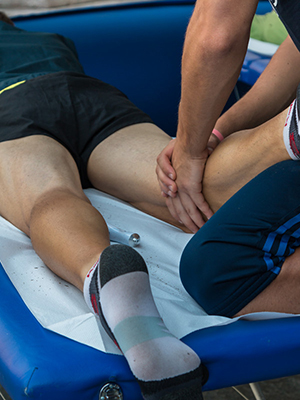
Sports medicine specialists focus on diagnosing, treating and preventing injuries related to participating in sports and/or exercise. Most sports injuries involve the rotation or deformation of joints or muscles caused by engaging in sporting activities. While team physicians consider treating professional athletes as an honor and a privilege, they face many unique challenges.
One main issue is that they have to deal with the conflict of interest between players and team owners. Both parties tend to think that they are acting in the best interests of the opposing party. Of course, reliable team physicians will keep their focus on treating the patient.
Professional athletes have high expectations for treatment outcomes, which makes the task of treating them quite demanding. Sports medicine physicians need to determine the best method of treatment so that their patients can return to play as quickly as possible. Most physicians exhaust non-operative options before recommending surgery. Factors that go into deciding the best method of treatment for professional athletes after an injury include the location of team in the season and the athletes’ long-term goals and expectations.
When an athlete is injured on the road, team physicians need to communicate and collaborate with other concerned medical professionals such as the physical therapist, athletic trainer and strengthening and conditioning coach. Such collaboration is crucial to evaluate and track the player’s rehab and return to the sport. All the necessary clinical documentation should be available at hand. An article in Becker’s Orthopedic Review cited a leading orthopedic sports medicine surgeon as saying:
“In the National Hockey League, they have a system where you can electronically encrypt into the players’ medical records so if he gets injured in another state, you can access the MRI and physicians’ notes.”
Such documentation is much easier today with EMR/EHR integrated sports medicine medical transcription services. Expert transcriptionists in leading medical transcription companies can deliver timely and accurate transcripts of SOAP notes, operative notes, consultations, evaluations/assessments and reports, referral letters, and medical/legal reports, effectively helping sports medicine doctors with their documentation challenges.
Immediacy of diagnosis and treatment is an important requirement for injured athletes. Sports medicine specialists need to be knowledgeable about how exactly to rehabilitate a patient. Athletes are dedicated to their sport and make no compromises when it comes to their diet and training. To help them, physicians need to understand them and work to keep them in the game.
Thorough, accurate medical documentation decreases the potential for miscommunication and errors. A reliable medical transcription service company helps sports medicine specialists manage patient information easily and efficiently, allowing them to focus on their most important challenge – patient care.


